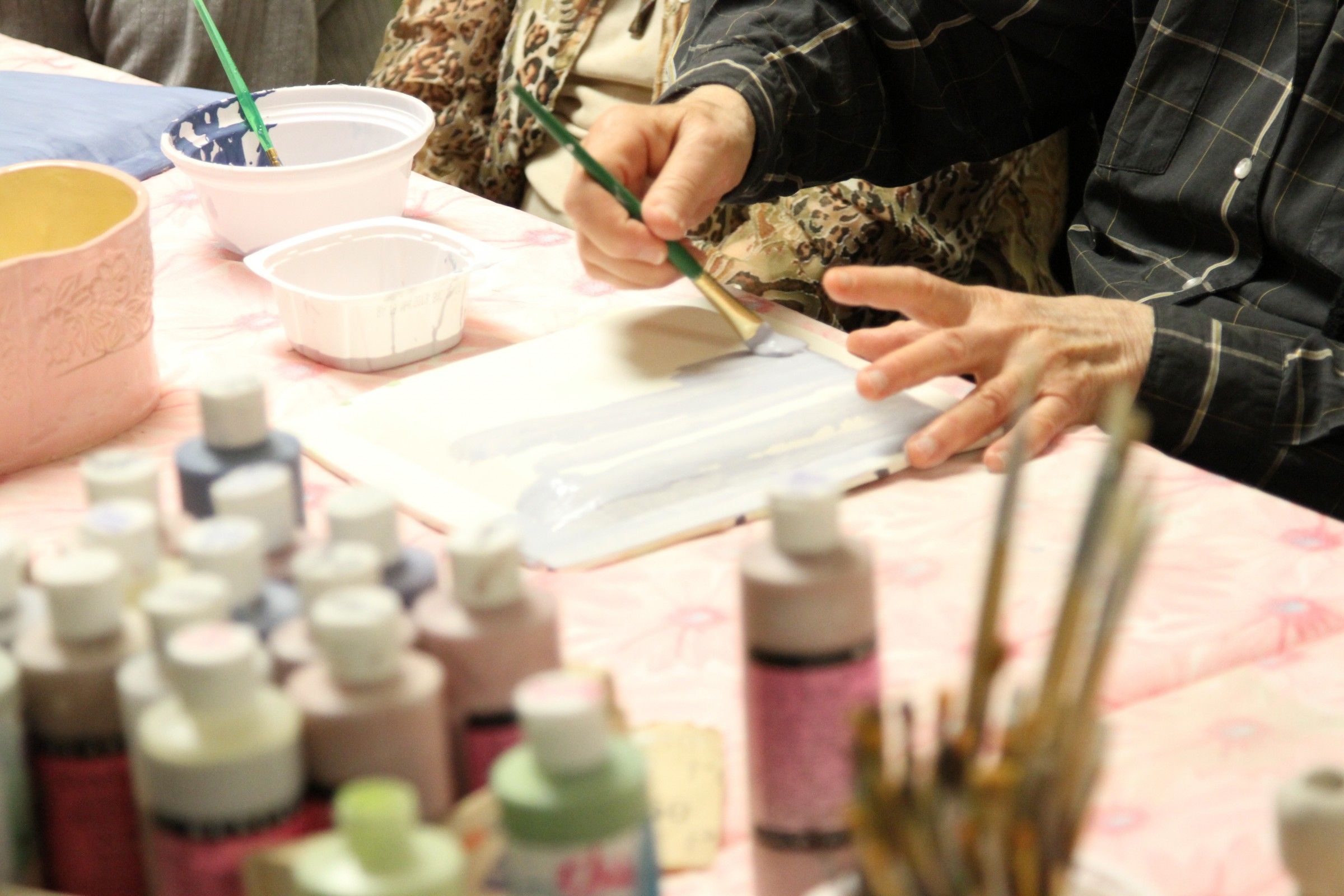Part Two: Engaging Activities
If you’re considering care for a family member who is living with the challenges of Alzheimer’s or another form of memory impairment, the items at the top of your checklist are likely related to finding a safe and healthy living arrangement where your family member will not just live, but live well. When you visit a senior living community, take every opportunity to ask questions about their memory care program.
It may be helpful if you divide your questions into a few main topics: living environment; engaging activities; staff training and education; and quality assurance.
In part one of our series, we outlined questions to ask about the living environment. Here, in part two, we’ll help with ways to identify if the community you are exploring features engaging activities that will help your family member.
First, a note about programming in general: When an older adult moves to a senior living community, the idea is that communal living and staying active are the keys to living longer, happier and more independently. The same is the case in a memory care setting.
A good place to start with questions is the community’s planned calendar of events. If they don’t have a set curriculum, this is not the place for your family member. If they do, consider the following:
- Is there purpose to the plan? For instance, are there activities designed to tap into positive memories of your family member’s childhood, such as a session where residents share high points of their life story?
- Is music part of the program? Studies have shown music improves cognitive functioning. Additionally, music processing is often considered spared by the neurodegenerative effects of Alzheimer’s disease, so it should certainly be a part of memory care programming.
- Are there activities that offer physical activity and exercise? Staying active is critical to long-term health; a study conducted by researchers at the Cleveland Clinic suggests that physical activity may even help slow the progression of Alzheimer’s disease. So, when you look at the calendar of events, look for opportunities for your family member to exercise at least once daily.
- Are there activities that tap into the senses? Stimulating the senses of a person with dementia has many positive benefits. Look for activities such as baking, cooking, handling various shapes, sizes, textures, etc.
- Do they offer activities in their outdoor/courtyard area(s) during nice weather? Alzheimer’s disease is often associated with low levels of vitamin D. Look for courtyards that include raised flowerbeds, walkways and shade where residents can participate in an activity.
- Does the community offer bus outings? For example, taking residents out for a picnic, a walk along a beach or the boardwalk, or to a museum are all examples of a successful programming plan.
- Are the activities designed to help those with memory impairment live a more fulfilling life? There should be sessions that encourage artistic expression – through painting, music or crafting, to name a few.
- Are there opportunities for civic engagement or for contributing to a good cause? Many of our communities make dog biscuits for local Humane Society chapters, bake cookies for the fire department, read stories to groups of visiting schoolchildren and write letters of appreciation to our deployed troops.
In addition to seeing a rich, active calendar of events, take note of the activities that occur – and the ones not on the calendar. In dementia care, you have to adjust programming to meet the needs of the residents as moods can vary. Sometimes it may be best to change direction and conduct an unstructured activity that is less active and engaging than initially planned. For example, trivia or poetry may be a better activity to facilitate than a walk in the courtyard – or chair volleyball may be a better activity to facilitate than Fun With Words.
Finally, as you walk through the community, look for examples of resident accomplishments such as their artwork on display, or perhaps a knitting project or a resident-tended garden. See how many of the activities and events are on display to help residents reminisce.
You might also like
Want to learn more about life at Atria Senior Living?


